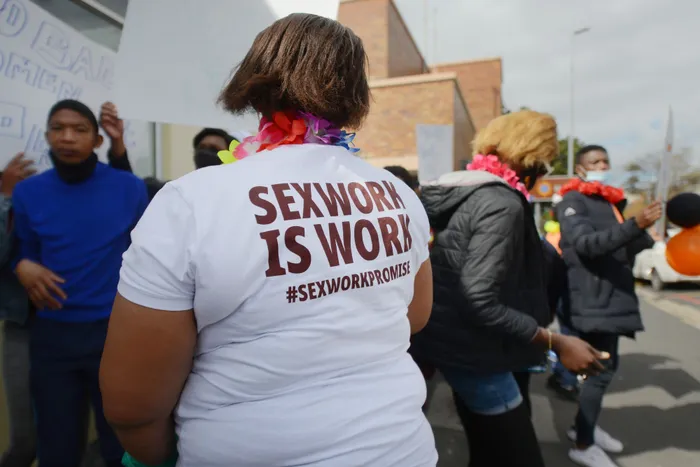
After years of delays and no clear timeline for change, a sex worker known as S.H. together with SWEAT (the Sex Workers Education and Advocacy Taskforce), decided to take legal action.
Image: Armand Hough/Independent Media
The Western Cape High Court will hold a special hearing in September after several civil society groups applied to join the case on the decriminalisation of sex work as amici curiae (friends of the court).
The hearings are set to take place between 1-2 September.
In 2022, the Decriminalisation Bill was introduced, but progress in legalisation has been deemed by those affected as too slow, sparking legal action.
After years of delays and no clear timeline for change, a sex worker known as S.H., together with SWEAT (the Sex Workers Education and Advocacy Taskforce), decided to take legal action.
S.H. and SWEAT filed a case in May 2024 to challenge the laws that criminalise adult sex work, arguing that these laws violate constitutional rights like equality, dignity, safety, privacy, and health.
In the court documents, SWEAT, on behalf of the sex workers, explained that the applicants are challenging the ban and criminalisation of the sale, the offer for sale, and the buying of sexual services by adults.
They are challenging section 20(1A)(a) of the Sexual Offences Act 23 of 1957 (the Sexual Offences Act); section 19/(2) of the Sexual Offences Act; and section 11 of the Criminal Law (Sexual Offences and Related Matters) Amendment Act 32 of 2007 (the Amendment Act).
In early 2025, the government (the Department of Justice) filed a response saying it supports decriminalisation and asked the court to give Parliament time to finish fixing the Bill.
The September hearings will involve several organisations — from public health researchers to feminist lawyers to religious groups — who have asked to join the case as amici curiae.
Some are in support of decriminalisation, and others are opposed to the case, wanting to argue that criminalisation should stay.
Those seeking to join in support of SWEAT include: Treatment Action Campaign, Sonke Gender Justice, Socio-Economic Rights Institute of South Africa, Survivor Exit Foundation, United Nations Working Group on /discrimination Against Women and Girls, South African Human Rights Commission, Access Chapter 2, Amnesty International South Africa, GenderDynamix, Cause for Justice, The African Policing Civilian Oversight Forum, The Centre for Human Rights (University of Pretoria) and the Dullah Omar Institute for Constitutional Law, Governance and Human Rights (University of the Western Cape), Women’s Legal Centre Trust and Triangle Project.
Some of these opponents have now applied to become full respondents (official parties to the case).
SWEAT added that the opponents have also stated that they need to be allowed to join as respondents, as the Department of Justice is no longer opposing it, and they believe that they are doing this in the public interest.
The applicants are seeking:
In court papers, SWEAT said although there are no agreed on, or recent, estimates of the number of adult sex workers in South Africa, in 2015, there are estimated to be between 131,000 and 182,000 adult female sex workers in country, but that number does not account for adult male sex workers, or transgender or non-bínary sex workers.
They also mentioned that in the fourth quarter of 2023, the informal sector accounted for 19% of total employment in South Africa, and is the fastest-growing sector of the economy.
The main case of the decriminalisation of sex work is expected to be heard towards the end of 2025 or early 2026.
theolin.tembo@inl.co.za